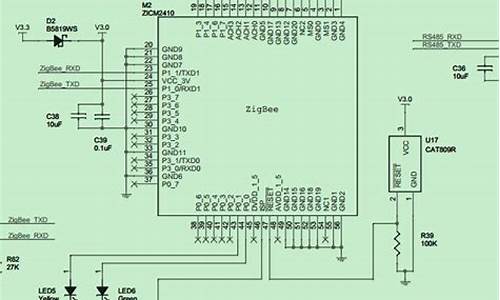Exploring the Potential Applications and Challenges of ZIGBEE Modules in the Healthcare IndustryThe Rise of ZIGBEE Technology in HealthcareZIGBEE technology has been making significant strides in various industries, including healthcare. Its low-power, low-cost wireless communication capabilities have opened up a wide range of possibilities for improving patient care, monitoring, and overall healthcare efficiency. In the medical field, ZIGBEE modules are being increasingly utilized to enable seamless data transmission between medical devices, wearables, and healthcare systems. This article delves into the potential applications and challenges of ZIGBEE modules in the healthcare sector. 
Potential Applications in HealthcareRemote Patient MonitoringOne of the key applications of ZIGBEE modules in healthcare is remote patient monitoring. With the help of ZIGBEE-enabled devices, healthcare providers can remotely track vital signs, medication adherence, and other health metrics in real-time. This not only allows for early intervention in case of any anomalies but also enables personalized and proactive healthcare management. Asset Tracking and ManagementZIGBEE modules are also instrumental in asset tracking and management within healthcare facilities. By tagging medical equipment, supplies, and even personnel with ZIGBEE sensors, hospitals can streamline inventory management, improve asset utilization, and enhance overall operational efficiency. This leads to cost savings and better resource allocation. Smart Home Healthcare SystemsThe integration of ZIGBEE modules in smart home healthcare systems is another promising application. By connecting medical devices, sensors, and wearables through ZIGBEE networks, individuals can monitor their health status from the comfort of their homes. This promotes independence among patients while ensuring timely intervention and support from healthcare professionals when needed. Challenges and ConsiderationsInteroperability and StandardizationOne of the primary challenges in implementing ZIGBEE technology in healthcare is ensuring interoperability and standardization across different devices and platforms. Healthcare providers need to navigate a complex landscape of proprietary systems and protocols to achieve seamless integration and data exchange, which can be a barrier to widespread adoption. Data Security and PrivacyWith the sensitive nature of healthcare data, maintaining robust security measures and preserving patient privacy are paramount concerns when deploying ZIGBEE-enabled solutions. The risk of data breaches, unauthorized access, and cyber threats necessitates strict adherence to regulatory requirements and best practices in data protection to safeguard patient information. Reliability and ConnectivityReliability and connectivity issues pose challenges to the continuous monitoring and transmission of data via ZIGBEE networks. Signal interference, device malfunctions, and network congestion can impact the real-time nature of healthcare data, compromising the effectiveness of remote monitoring and diagnostic processes. Ensuring network resilience and redundancy becomes crucial in mitigating these challenges. In ConclusionIn conclusion, ZIGBEE modules hold immense potential for transforming the healthcare industry by enabling innovative applications such as remote patient monitoring, asset tracking, and smart home healthcare systems. Despite facing challenges related to interoperability, data security, and connectivity, advancements in ZIGBEE technology continue to drive progress towards more efficient, patient-centric healthcare delivery. By addressing these challenges and leveraging the strengths of ZIGBEE technology, healthcare providers can harness its benefits to improve patient outcomes and enhance the quality of care.
|
